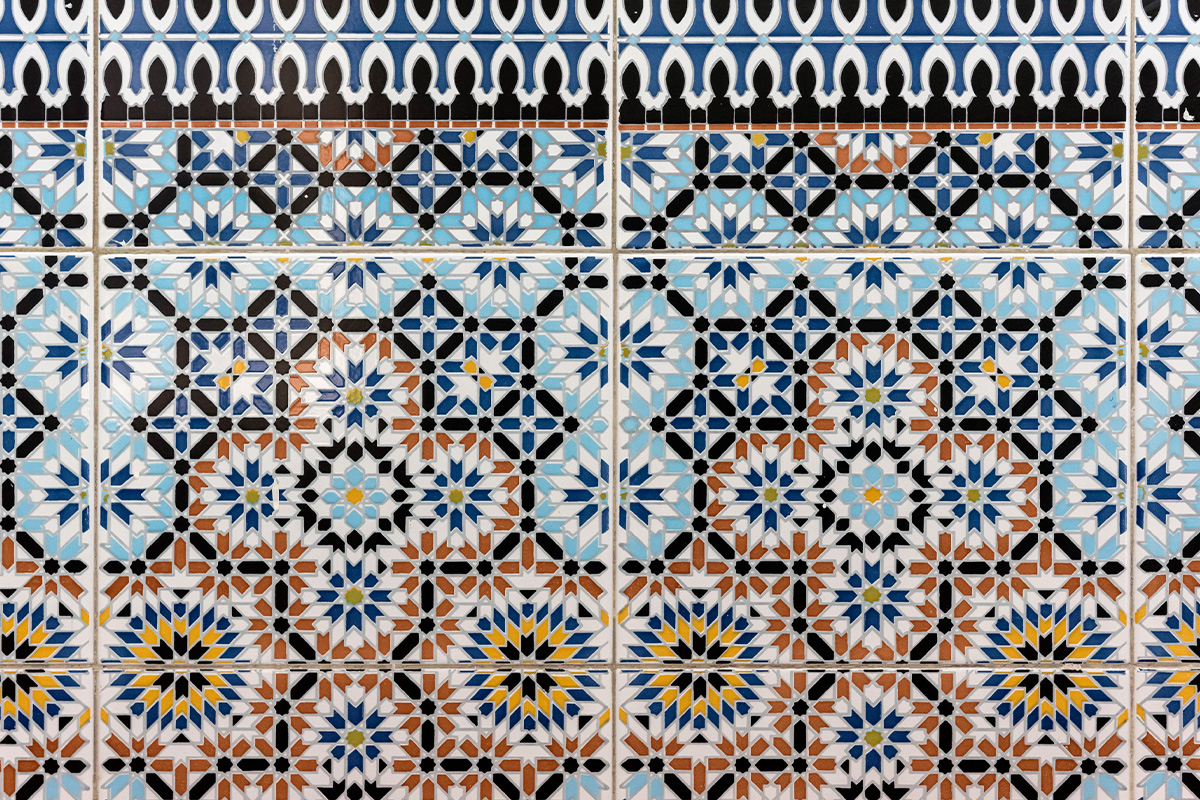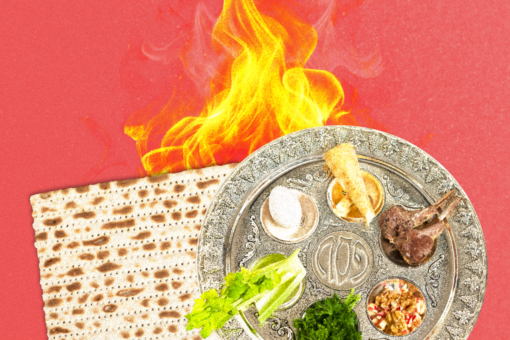Spicy! Traditional! Exotic! Hamsas! Evil Eye emojis! I saw these motifs plenty within the organized American Jewish world this past November in honor of Mizrahi Heritage Month. But true representation, struggles and input from today’s Mizrahi American Jews? Nearly nonexistent.
November marks the annual Mizrahi Heritage Month, commemorating the 850,000 Jewish refugees displaced from the Middle East, North Africa and Central Asia. The month is tied to November 30, an Israeli national day of commemoration for Mizrahi Jews displaced from Arab countries and Iran in the 20th century. This day of commemoration was signed into law in 2014.
Being a young Mizrahi Jew who spends an unreasonable amount of time on the internet, I was excited to log onto social media and see posts from Jewish organizations spotlighting our diverse and rich heritage. Throughout the month, I saw countless links to playlists featuring hits by Mizrahi artists like Ofra Haza, A-WA (the other Jewish Haim sisters), and Static & Ben El Tavori. I saw delicious recipes for traditional dishes like Persian ghormeh sabzih and Egyptian mujaderra. I saw Mizrahi celebrities spotlighted and hamsa art displayed.
But among this plethora of celebrities, music and food, I was disappointed to not see as many facts and stories included from the contemporary Mizrahi American experience. What played out on social media during Mizrahi Heritage Month is the same experience that often finds us feeling left out, tokenized and cast aside as outsiders.
As Mizrahi Jews, we are happy to share our grandmothers’ recipes, our native tongues and invite you to dance to incredible music with us. It is crucial that non-Mizrahi Jews be made aware of these traditions and the rich diversity of culture within the Jewish community. However, events meant to cater to our needs by simply offering our foods and playing our music are not enough by themselves. We need you to do the work to invite us in every day of every month, on all occasions.
We need American Jewish organizations to go deeper into what Mizrahi history in America has been like, and we need you to actively work for a future in which we are not tokenized and exoticized. We need you to create space for Mizrahi and Sephardic Jews at the main table, not a separate one adorned with different food and a colorful woven tablecloth to be taken in with awe. Important work remains needed to be done to include diverse Jews from a variety of backgrounds, and Mizrahim must not be forgotten or their demands left unanswered.
As a young Mizrahi Jew in America, I refuse to leave my heritage checked at the door when I participate and engage with Jewish organizations. I wish to see my full Jewish self reflected in groups, religious ceremonies and in discussions about complex topics.
A majority of the Mizrahi diaspora began tied to the creation of the State of Israel — when Jews from Arab countries fled, or were exiled — and the largest concentration of our population resides in the U.S. and Israel. It is imperative that our voices be part of the conversation on relationships between Israel and Jewish Americans.
It is important to note that some major Jewish organizations are taking active steps towards a more inclusive environment. For one, Hillel has recently implemented a series of groups and forces aimed at gaining a deeper understanding of the Mizrahi experience among college students. They launched a Mizrahi-Sephardic cohort for students across Hillel campuses to join together virtually and share their opinions as well as foster a space to meet people with our shared backgrounds who we may not encounter in Ashkenormative settings and occasions.
Hillel also recently partnered with SAMi (Sephardic American Mizrahi Initiative), a newly established organization created by and for Mizrahi and Sephardic Jews meant to instill leadership and entrepreneurship skills within college students in the identifying community. I have been lucky to participate in both opportunities and feel hopeful for a future in which Mizrahi students feel themselves adequately represented in major Jewish spaces. Other organizations like JIMENA (Jews Indigenous to the Middle East and North Africa) and various Mizrahi social media influencers lift up Mizrahi history, customs and the obstacles and adversity we face in a Jewish society that is not well enough aware of our existence and our needs.
So here’s my message to major Jewish organizations: Take note and take action. Observe Ashkenormativity in your spaces and call it out. Work to listen to underrepresented Mizrahi voices and their unique experiences every month, not just during Mizrahi Heritage Month. The Jewish past and the Jewish future is not complete without us.
And yes, we’ll keep sharing our amazing food with you. But know we can add so much more.



